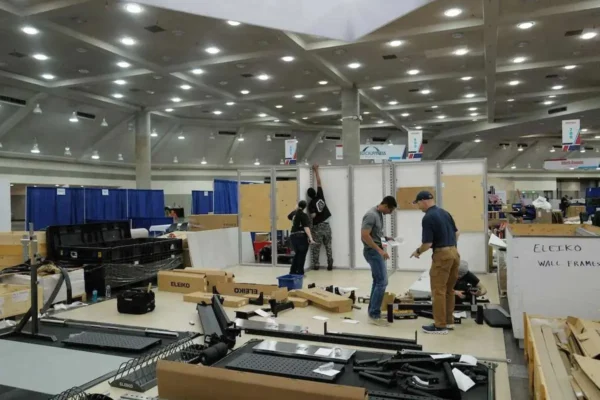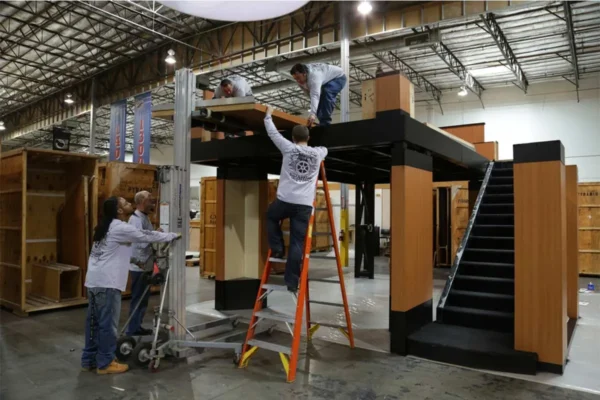 Competition on and off the track
Competition on and off the track
Similar to the intense roller coaster of emotions experienced by Olympians battling to become a champion on the world’s stage is another type of competition prior to the Olympics.
Jubilance and something akin to winning a gold medal is perhaps how it feels when a destination’s Olympic bidding committee ends an increasingly competitive Request for Proposal (RFP) process by hosting this mobile event.
Chances are for the cities that lost by a vote or two, it isn’t the same as gaining the silver or bronze — unless the runner-up destination wins the bid for a future Olympics like Pyeongchang, Korea. The destination lost to Vancouver in 2010 yet won the 2018 Winter Olympics bid.
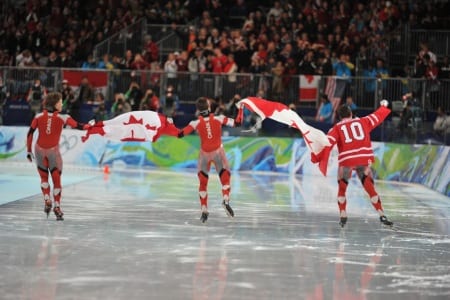
Cities usually have to prepare for their Olympic bids seven years in advance. At first, these cities compete on home territory as Vancouver, host of the 2010 Winter Olympics, did against other Canadian cities back in the mid-to-late 1990s.
The national winner then gathers all the relevant stakeholders, as London did when bidding for the 2012 Summer Olympics, to form a bidding company that applies with the International Olympic Committee (IOC). This Switzerland-based Olympics organizer stacks up cities against numerous locations all over the world before narrowing down a short list of candidates. The actual RFP process could last from three to five years.
“The candidate cities flesh out their bid proposals, and there is then an extensive review process by the IOC leading up to a final vote. The voting process is quite intense as the various candidate cities work very hard to get support from voting delegates,” explained Ted Townsend, senior manager of corporate communications, City of Richmond, which is in British Columbia, Canada.
During the 115th IOC Session in 2003, members of the organization chose Vancouver in a final vote, and in the 117th session in 2005, they voted for London. Winning favor with the IOC for both destinations was their sustainability. Also, overall, Vancouver spent $6.4 billion, and London spent $14.6 billion. Even if both destinations’ total expenditures were combined, it wouldn’t come close to the $51 billion spent this past February by Sochi, Russia, which was chosen during the 119th IOC session in 2007.
Why hasn’t the U.S. hosted another Olympics?
Originally, the Russian Olympic Committee promised the Sochi Olympics would be sustainable, yet Olympics construction affected park land and wildlife and displaced thousands of residents. Despite Sochi being the most expensive Olympics ever, there were reports circling the press and social media about incomplete infrastructure and a lack of preparedness to host the Games and welcome the world.
Sochi also brought to the forefront an age old question – When will the U.S. host another Olympic Games?
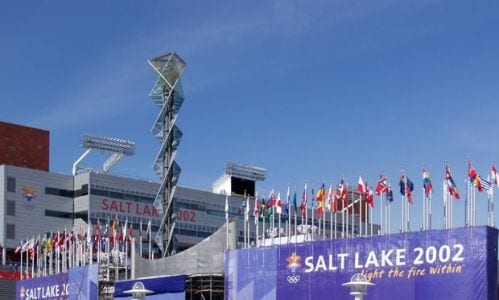
Since the U.S. last hosted the 2002 Winter Olympics in Salt Lake City, it lost two Olympic bids and then declined to bid for 2020. This downward trend suggests that the U.S. is no longer a lock to win the bid, even though it has hosted the Games eight times – more than any other country. This perceived dominance could be contributing to its loss of favor with IOC members.
In 2012, Bloomberg reporter Rick Burton cited a strike against the U.S. — the Ted Stevens Olympic and Amateur Sports Act of 1998, a U.S. law that ensures the U.S. Olympic Committee earns more money off the Games than other countries and 12.75 percent of the billions going to IOC.
If the U.S. bids for 2024, its best bet is San Francisco, according to Yahoo! News. Other U.S. cities interested in competing nationally for the 2024 bid include Los Angeles, San Diego, Dallas, Boston, Philadelphia and Washington, D.C. Of course, other cities all over the world are expected to bid for 2024 too.
ExCeL proves the value of existing venues
Although not part of London’s bidding company, ExCeL London, a public assembly venue, was a part of IOC’s evaluation when considering London for the Summer Olympics.
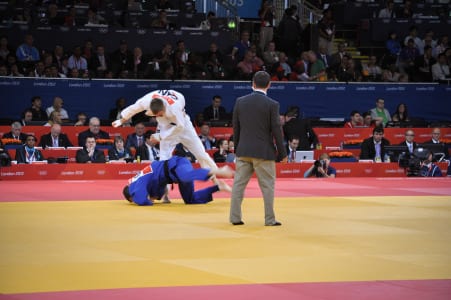
“When the London team put the bid together, they wanted to stand out from others. London’s bid was meant to be the most sustainable games ever. We wanted to use the public transport system and regenerate the eastern side of London — areas that were less developed,” explained James Rees, executive director for conferences and events, ExCeL London. “Where previous organizers were criticized, London had a small footprint [on the environment.] Rather than building everything from scratch, we used existing facilities.”
An existing facility, ExCeL London was involved with the build up to the Games two to three years in advance and hosted seven Olympic and six Paralympic events. To prepare, ADNEC, owner of ExCeL, expanded the facility from 650,000 square feet to a million square feet of contiguous space.
“We opened on time and under budget,” added Rees.
City of Richmond supports Vancouver
Assumed by many as simply being a suburb of Vancouver, British Columbia, Canada, the City of Richmond’s identity was cemented during Vancouver’s journey to host the Winter Olympics. The City of Richmond immediately supported Vancouver as soon as it started preparing for the bid.
“We committed [CAN] $500,000 to support the Bid Corporation. We were the only local government that made a direct cash contribution in support of the bid. City staff also worked closely with the Bid Corporation to help them develop their proposal and build local support for hosting the Games,” explained Townsend. “Richmond supported the bid because we recognized the economic and social benefits the Games would bring to our region.”
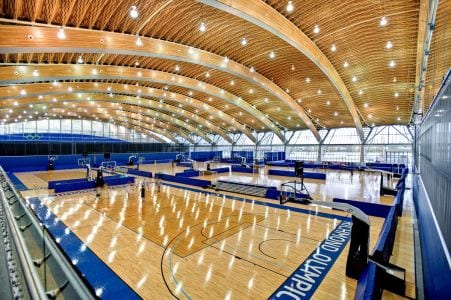
Sustainable practices in the overall way of life in Vancouver, and in the City of Richmond, as well as using existing facilities for the Games, contributed to the destination winning the bid.
“That relieved some of the stress of Games construction going right down to the wire, which caused major concerns in previous Games,” added Townsend. “It also was a great boost to the athletes as it meant they had lots of opportunity to familiarize themselves with venues through training and competition before the Games.”
Because of City of Richmond’s early support for Vancouver hosting the Winter Olympics, it won the rights to build the $178 million Richmond Olympic Oval, which hosted 12 events during the Games.
“It was by far the largest single building project event undertaken by the City, and we completed it on time and on budget,” said Townsend. “The City committed another $6 million to its various Olympic programs, which was augmented substantially by additional funding from governments and corporate partners, so the final value of our Games-times programs was about $30 million.”
After experiencing the Olympics on his home turf, Townsend advises other bidding destinations to plan in advance, take advantage of opportunities from hosting the Games and to create long-term legacies. This is something that contributed to Vancouver’s and London’s post-Olympic success.
With many countries threatening or already implementing sanctions against Russia due to its tensions and perceived negative involvement with neighbor Ukraine, it doesn’t seem very likely Sochi will have the same post-Games success.
See related article: Mobile Events Series: Legacies after the Olympics bid farewell (Part 2)












